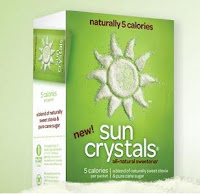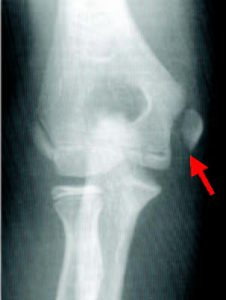Filed under: General Health, Nutrition
I know, lame title, but an important topic and something that I feel compelled to address.
Before I get to that I would be remiss if I did not congratulate Cressey Performance on their 3 year anniversary. CP was a wonderful experience and I would not be anywhere near the coach, nutritionist or person that I am today if it wasn’t for Tony, Pete and Eric as well as the incredible clientèle that I had the privilege of coaching. Please take a moment and check out the CP blog and EC’s blog celebrating their anniversary.

Back to the title, I came across an article on MSN just recently about current obesity rates in America, and it is frightening to say the least.
While it seems that childhood obesity rates are stabilizing (for now anyway), adult obesity continues to skyrocket up. In 1980 only 15% of the adult population was defined as obese, as of today that number is 34%.
40 states, out of 50, have at least 25% of their adult population deemed to be obese. The best state, Colorado, is only at 19.1%. That is still 1 in 5 adults who are considered obese!
Where have we gone wrong?
Considering that 10% of all health care costs are associated with obesity, this is something that needs to change, and it needs to change now.
To me the answer isn’t getting rid of McDonald’s. Too often I hear the blame laid at the feet of the food industry, and don’t get me wrong they have certainly played their part, but so have we. We have to start holding ourselves accountable for our choices and actions.

We choose to eat McDonald’s, they did not make us pull into their drive-thru and order 2 Big Mac’s with fries and a drink, super-sized of course because it is only 25 cents more. We made that decision. Personal accountability has disappeared, and to me nowhere is it more apparent than in our food consumption.
People claim that it is too expensive to eat healthy, especially in this economy. I say bullshit. We just choose to spend our money on other things. As a country we spend the smallest percentage of our disposable income on food in the industrialized world, at less than 10%. Instead we buy a giant flat-screen tv, and the HD cable to go with it or a 12th pair of jeans, designer of course. These are fine things to have, but recognize that you are making a choice.
To piggy-back that point, the amount of money that we spend on food away from home was 48.5% of all money spent on food, which is up from 34% in 1970 and 25% in 1950. Clearly this is a problem as well, but again, we are choosing to spend that money at restaurants rather than on home-cooked meals.
Food consumption is all about choices, and right now as a whole we are choosing poorly. Nobody is deciding for you what you choose to consume, so start holding yourself accountable and start making better choices. We will all be better off for it.
Filed under: General Health, Nutrition
Finally, it is here. I have been talking about blogging about the new “green” Hannaford I just moved in next too, and I am finally doing it. Below is a picture from my front door to the parking lot, that is how close I am to the store. I love walking to the grocery store a few times a week and just picking up the few things I need rather than making monster trips once per week.

This Hannaford is quite impressive. It is the first Platinum-certified LEED supermarket in the world. The Platinum designation is the highest rating a company can receive from the U.S. Green Building Council’s Leadership in Energy and Environmental Design (LEED).
This Hannaford is 44% more efficient than the standard grocery store as it has geothermal heating and cooling, solar photovoltaic panels, high efficiency refrigeration, energy efficient lighting, advanced recycling, and vegetation that grows on the roof to provide insulation and help control storm water. It is absolutely amazing the amount of environmentally friendly technology that went into this supermarket.
This store is essentially a research laboratory for the company to see which programs and systems work best to reduce waste, greenhouse gas emissions, and water consumption as well as improve the indoor environment for customers and workers alike. The store boasts significantly greater air quality, doors on nearly all freezer and refrigerated cases which saves energy and provides a more comfortable temperature and more.

The first time I shopped there I thought the lights in the refrigerators/freezers were broken as they were off. As you approach they flick on to provide light when you need it, and turn off as you walk away, saving energy. It is also home to a state-of-the-art GreenChill refrigeration system, which uses 50% less refrigerant gas than a traditional system.
The best part about this store is the large produce and “natural foods” section they offer. I am able to get virtually everything I eat from one store, rather than splitting it up so much as I did before. I can get my raw cheese (for $1.40 less than Whole Foods in CT!), half gallons of unsweetened almond milk, Ezekiel bread, english muffins and cereal, Maine’s Own Organic Milk which is from local grass-fed cows and is lightly pasteurized (not ultra-pasteurized), and more. It also doesn’t hurt that everything is about 5-15% cheaper than Connecticut!
We also have a wonderful farmer’s market on Tuesdays just down the street from us where we can get raw organic milk, raw organic butter, eggs from chickens that actually eat like chickens, grass-fed pasture-raised meat and so much more. It is awesome. This morning I put some fresh blueberry honey butter from the farmer’s market on my Ezekiel toast, it was mind-blowing. Second best thing to peanut butter I have ever put on my toast.
The move back to Maine has just opened up so many convenient and more affordable real whole food options, more than I had even anticipated. Maine gets a bad rap for being a rural state, but in my mind it is a good thing. The amount of high-quality food produced is astounding and readily available and it is too bad that so many people have such limited access to situations like this.
Maybe some of you should move to Maine? A little food for thought I guess.
Filed under: General Health, Nutrition
I know my blogging has been quite spotty lately, but I promise it is not going anywhere! Also a quick reminder that Mike Robertson is holding the 2010 Midwest Performance Enhancement Seminar. It is an all-day affair and includes the likes of: Brian Grasso, Lee Taft, MR himself, Pat Rigsby, Bill Hartman, and Brett Jones.
If you sign up before June 24th you get an incredible early bird special of only $149! Anytime after and the rate goes up to $199. So if you want to save $50 and see an amazing lineup sure to blow your mind, check out the 2010 Midwest Performance Enhancement Seminar.

To all of you from Maine, check out these articles in the Portland Press Herald by Bill Nemitz. He is a reporter following the Maine National Guard’s Bravo Company, 3rd Battalion, 172nd Mountain Infantry in Afghanistan. The best man at my wedding, my lifelong best friend, is a Staff Sergeant serving in that hell hole, so if you want to follow their daily lives and missions check it out.
In actual nutrition oriented news, I am currently taking an online class about Nutrition and Aging for my Master’s degree. I was reading over the textbook about the fat requirements for the elderly population and came across some information that bemused and angered me.
The book mentions standard fare like 10-30% of the calories of the elderly should be from fat, and dietary cholesterol is recommended to be 300mg/day or less. The book then goes on to mention a 5 year study of 4066 men and women at least 71 years of age. Elevated total cholesterol was associated with a similar pattern of death as seen in younger adults.

At first glance this seems to follow traditional medical dogma, but when adjustments for age, preexisting cardiovascular disease, risk factors, and general health status were made the subject group with the lowest total cholesterol, less than 160mg/dL, “had the highest incidence of preexisting cardiovascular disease, the highest risk factors for cardiovascular disease, the highest indices of poor health, and the highest crude coronary heart disease mortality.” This statement is then immediately followed by the comment “it appears that elevated total cholesterol levels remain a risk factor for death from coronary artery disease in elderly persons.” What?!
They just quoted a study in which the people with the lowest total cholesterol had by far the greatest health issues, and they follow that up with commentary that high total cholesterol is the risk factor? How about low total cholesterol being a risk factor? How do these comments follow the facts? It is mind boggling.
The next paragraph lays out even more data about why fat intake and total cholesterol are not the danger they are made out to be. They mention a study in which a decrease in dietary fat intake was associated with an increased risk of ischemic stroke, as well as low cholesterol levels being associated with short-term mortality after an ischemic stroke. Also in a 20 year follow up to the Framingham Heart Study when saturated and monounsaturated fat intake, but not polyunsaturated fat intake, was increased the risk of ischemic stroke decreased.
Again these points are followed with the advice that one approach to reducing risk of coronary heart disease in older adults is to reduce intake of saturated fat and simultaneously increase polyunsaturated fat! This completely contradicts what that the 20 year follow up showed!

I just fail to see how they can mention that data and then make recommendations to the contrary, and people are totally ok with it. When will people let go of the dogma and open their eyes and realize that their is much much more to cardiovascular disease risk than total cholesterol! It may be a player, but it is far from the main one and we need to focus our attention on the actual problems, not the alleged ones that haven’t panned out in 30+ years of research and recommendations.
Filed under: General Health, Nutrition
Question:
Brian,
Hey I just wanted to say that I have been reading your blog for a while now and want to thank you for all the tremendous insight on diet etc. I guess you can say diet and nutrition is a hobby of mine and I am always looking to learn more. Now to my question…It is almost impossible to find decent products that do not contain Splenda, sucralose, whatever. I have Jonny Bowdens cookbook 150 healthiest meals on earth and he talks about artificial sweeteners being bad (except xylitol) for you. Obviously I knew this but I refuse to use real syrup due to the high sugar content and its hard to find a good protein powder that does not contain splenda…..what is the deal with splenda and am I cutting years off my life by eating products containing it?
Thanks and sorry for the essay question!
Answer:
First off, thank you for the kind words, much appreciated. Like with most nutrition questions, the answer is context dependent. Are you cutting years off your life by consuming Splenda once in a while? No, probably not. If you consume a significant amount on a daily basis, this could pose problems. I wrote an entire blog about why I don’t like Splenda.
Besides the GI problems I discuss in that above blog, artificial sweeteners in general also stimulate an insulin response, elevate HbA1c which is a measure of your blood sugar over a long period of time and a marker for diabetes and cardiovascular disease, and associations with many other anecdotal problems.
Now I am not someone who thinks that you have to eliminate all artificial sweeteners forever and you can never consume them or they will kill you. I think clearly that has proven not to be the case since they are everywhere. For example if you consume 1 scoop of whey protein powder per day with some sucralose (Splenda) in it, that is probably not an issue. If you are consuming half of your diet from “low-sugar” products loaded with artificial sweeteners, then that is a problem.

I think acceptable substitutions would be natural sweeteners like stevia (I like Sun Crystals), turbinado sugar (unprocessed sugar, contains roughly 2/3 the calorie content of processed sugar) or maybe xylitol or erythritol.
Filed under: General Health
Wow it has been far too long since I last blogged. Life has been a whirlwind since moving back to Maine. To all you homeowners out there, I tip my hat to you. Having a house has been even more work than I imagined, trying to set it up and acquire all of the necessary things you need to have a house. Granted, I don’t actually own this house, so I can only imagine the actual purchasing experience, as well as paying the taxes!

Now that we are settled in and have almost all of our projects completed (are they ever all really done?) things are calming down and we can actually get into something resembling a routine. Not only has my blogging been off, my eating and training have been off as well. I am very glad to be getting things back to normal starting today.
I will say that one very nice perk of the move is that we bought a sweet new tv, which was pretty much necessary considering I am such a huge fan of movies, rivaling even the great Tony Gentilcore. We also got a Blu Ray player with it, I couldn’t resist and we needed a new DVD player anyway since ours broke. We bought Avatar last night and watched it again, just as incredible as the first time.

OK enough about me. What I really wanted to enlighten you all with today is that Mike Robertson is holding an awesome seminar on August 28th at the Indianapolis Hotel. The 2010 Midwest Performance Enhancement Seminar is an all-day affair and includes the likes of: Brian Grasso, Lee Taft, MR himself, Pat Rigsby, Bill Hartman, and Brett Jones. That is one star-studded line up that anyone would be privileged to listen to.
The best part is that if you sign up before June 24th you get an incredible early bird special of only $149! Anytime after and the rate goes up to $199. So if you want to save $50 and see an amazing lineup sure to blow your mind, check out the 2010 Midwest Performance Enhancement Seminar.
It is good to be back and I have not forgotten that I said I would blog about the “green” Hannaford grocery store across the street from my house. That will be coming soon.
Filed under: General Health, Nutrition
A colleague of mine forwarded an article from the Wall Street Journal about a new study from the Harvard School of Public Health. This new study suggests that the problems long associated with red meat consumption, are actually from the processed cuts of red meat: bacon, sausage, hot dogs and cold cuts and not from unprocessed meat like steak. Shocker I know.

While it is amazing that is has taken this long for something like this to be truly analyzed, actually separating processed versions of red meat from things like steak and other non-processed cuts has actually provided the proof we have all known to be there: that the real problem with red meat and heart disease is from processed shit. I bet it would make even more of a difference if they separated conventional red meat from grass-fed.

They even acknowledge that both processed and unprocessed red meat contain saturated fat, and that it does not seem to play a role in the association of processed meat to heart disease. At least some things are catching on. The sad part about this article is that they blame all of the problem of processed meats and its link to heart disease on sodium. Claiming that sodium increases blood pressure, which is only true in certain people.
Fortunately the article redeems itself a bit by mentioning that processed meats contain large amounts of nitrates/nitrites, which have been shown to interfere with the health of blood vessels and the body’s ability to process glucose. But that is a mere quick mention, as the focus is clearly on sodium. Below is my favorite quote from the article:
Nevertheless, Dr. Eckel said, “I was amazed to see the differences in sodium content” between the two categories of meat.” It suggests that people with high blood pressure “might need an [additional] drug” to control their condition if they eat a lot of processed meat,” he said.
Seriously? His advice and/or thought process is that people need another drug? Are you kidding me? There are other treatment protocols besides drugs. How about just eating less processed meat? Or eating more fruits and vegetables, or drinking more pomegranate juice (which has been shown to lower systolic blood pressure by up to 20%), or exercising?

That truly pisses me off that so many doctors’ (not all) first inclination is to treat every problem with a drug. Then they treat the problem created by one drug, with another drug, it is a vicious cycle. There is a time and a place for pharmaceuticals, but it is not the only option!
A perfect example is a woman I know who asked to have her sub-particles of her LDL and HDL checked, as she had read that they can be more significant risk factors than just the overall numbers alone. She is right of course. Her cardiologist said that wouldn’t help because there is no way to change particle type. Which actually translates to there is no drug he can prescribe that has been shown to affect particle size, so there is nothing that could be done about it, even though it is well established that diet plays a very large role in particle size! I digress.
Coming back to the article at hand, unfortunately this study was only a meta-analysis, which did not contain any random controlled trials that actually show acute effects, not just correlations, but it is definitely a step, however small, in the right direction. Hopefully they will realize that the problem goes far beyond sodium, and is actually about the foods you eat, not just a nutrient they may possess.
On a interesting aside, there is a new hot dog I was introduced to by a company called Let’s be Frank. They have 100% grass-fed beef hot dogs from California pasture-raised cattle, without any antibiotics, hormones, steroids, nitrates, nitrites, etc and they are lower in fat, calories and sodium than traditional hot dogs! They are also absolutely delicious, check them out.
Filed under: General Health, Nutrition
If you want to build a healthy, muscular physique, the quality of your food matters more than the quantity.
As the nutritionist at Cressey Performance, I see the diets of a lot of guys who want to get bigger and stronger. They run the spectrum from excellent to atrocious (mostly atrocious), but there’s one commonality shared by almost all: every guys thinks his diet is perfect.
Every day I have guys tell me that they don’t actually need any nutritional advice, because they “already eat really well.”
Bullshit.
Talk with any nutritionist worth his salt (ha!), and he’ll tell you it’s rare to find someone who consistently makes good food choices. In my mind, it’s the true linchpin to body composition success—improving the quality of the foods you eat has just as big of an impact on your physique as the quantity you eat.
With that in mind, here are five foods that you can immediately add to your diet to improve the quality of your calories and take your physique to a whole new level. [continue reading...]
I just wanted to give a little shout out to myself, as that is my first article ever on TMuscle.
Filed under: General Health, Nutrition
Today is one of those days when I have a bunch of great information, but so unrelated that I can’t make them into one coherent blog post. Plus, sometimes it is nice writing (and reading) relatively quick, informative blurbs about several topics, rather than an entire book on one sole topic.
1. My wife graduates from dental school this weekend, and will officially be a dentist. She has busted her ass and I am incredibly proud of her.
2. Amazingly Cocoa Puffs are no longer endorsed by the American Heart Association with their “heart-healthy” check mark of approval. Maybe they are no longer writing checks to the AHA (because you must pay a nice little fee for that check mark) for this lovely little stamp because they realized that kids don’t give a shit if a cereal is AHA approved or not?

Or maybe the AHA realized that really crappy, high-sugar foods like Cocoa Puffs are not fooling anyone, and if anything is just making them look like idiots or incredibly greedy, whichever you prefer.
3. On a good note, my wife and I just discovered an absolutely delicious cereal that can replace Cocoa Puffs in a heart beat, while actually being good for you to boot. It is Cocoa Beach granola by Kashi. While I am not normally a fan of many Kashi products, this one boasts tons of whole-food ingredients with minimal poor ones, while providing 7 grams of fiber and 6 grams of protein per 1/2 cup. It is a wonderful combination of chocolate, almond and coconut without any preservatives or artificial sweeteners or flavors.

While I wouldn’t say it is the world’s perfect food, it is a great way to satisfy some of that chocolate craving, while bringing back childhood memories of devouring massive bowls of cereal.
4. As I am sure many of you read my review of the atrocious China Study, along with my follow up post answering the questions that it raised. I feel this book is just injecting a massive fear of meat and protein when we already have a fear of fat and carbs on our hands. It is nonsensical and the main study that the book is based on doesn’t support the conclusions of the author.

You don’t have to just believe me, as I came across a tremendous review of The China Study, that gives you a mountain of information to rebut people with when they toss that piece of shit book out as evidence that being vegan/vegetarian is healthier. Now if you choose to not eat meat due to ethical reasons, then good for you, that is your choice and I applaud you for it. But do not try and tell me that eating high quality pasture-raised grass-fed meat is bad for me, because the evidence just does not support that statement.
Kristy from Feasting on Fitness absolutely takes apart The China Study in thorough detail, in two parts, leaving no doubt about its lack of evidence. Read it: Part I and Part II.
5. Slacker Radio is pretty much the greatest invention ever. It blows Pandora out of the water.
6. As some of you may have noticed, I have made a conscious effort to blog more often, about 4-5 times per week. Is there anything in particular you the readers are interested in learning about? Anything that tickles your fancy? Any bones you have to pick with me? Anything you want to see more of? Less of? Just let me know!
Have a great weekend everybody!
Filed under: General Health
I greatly enjoy reading other people’s blogs, and I love sharing great ones that I come across with you. Check these great ones out and let me know what you think!
Understanding Elbow Pain – Part 1 and Part II – by Eric Cressey. I think this is one of Eric’s best blogs ever. He goes into just enough detail on elbow anatomy and pathology to greatly educate you, without losing you. Plus you see the awesomeness that is Graston and ART being done on him personally. If you have ever suffered from elbow or forearm pain, check this out.

How to Lose 40lbs & 20% Fat – by Krista Scott-Dixon. The Precision Nutrition team is at it again, and this may just be one of the most inspirational stories I have read about a woman’s journey to the top from rock bottom. She goes into great detail about how her mindset in so many facets of her life has changed, and how that has made all the difference.

Saturated Fat and Insulin Sensitivity, Again – by Stephan Guyenet. Stephan puts another nail in the “saturated fat is the devil” coffin. Showing once again, that some of the claims made against saturated fat, this time its effect on insulin sensitivity on men with metabolic syndrome, are just plain false. Stephan never fails to provide high quality and well thought out content.
Filed under: General Health
Today I wanted to share with you a video that a reader of mine sent along. It is from Ted.com, which appears to be a pretty awesome site, though I am by no means an expert on it.
This video piggy-backs along with my previous two posts on salmon and cod, and renews my hopes for a continued uprising for better food production. It is funny, clever, enlightening and intriguing, give it a look.
How I Fell in Love with a Fish






















Posted on July 16th, 2010 by Brian St. Pierre
1 Comment »